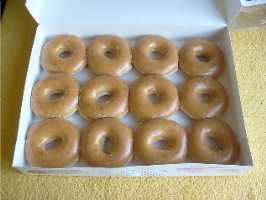TENANT NEWSLETTER
by Mark TarsesSeptember, 2008
AIRLINE BAGGAGE FEES.
Up until a year ago, you could check on 2 pieces of luggage at major airline in the United States at no charge. Now, all the major airlines (except Southwest) charge a fee for checking on a second bag, and some airlines charge a fee for checking on even one bag. However, the purpose of these fees is not what you may have assumed. The airlines are not trying to make money carrying luggage. They have an ulterior motive. Can you guess what it is?
The real purpose of these new luggage fees is to get passengers to bring less luggage with them to the airport in order to create more space for cargo. United Airlines is now charging $15 to check on a first bag, $25 for a second bag, and a whopping $125 for a third bag. Now - if you were running United, would you rather get $15 from a passenger to carry a 20 pound suitcase from San Francisco to New York or $40 to carry 20 pounds of air cargo instead? That's a no-brainer. Since the airlines starting charging second bag fees, the number of second bags checked onto airplanes has dropped by over 50%. This has created a tremendous amount of space on airplanes for additional cargo.
The airlines have also dramatically raised their fees for transporting pets. United is now charging $125 per pet per flight, or $250 round trip. That's a lot of money for bringing Poochie with you! Delta is charging even more, $150 per pet. Again, the purpose of these pet fees is not to make money carrying dogs and cats, but to get passengers to leave their pets at home to make more room for cargo.
This strategy is very similar to the way the airlines got rid of printed tickets a few years ago. All the airlines wanted to get rid of printed tickets, which are expensive to produce and mail to passengers, so all they started charging a small fee for issuing printed tickets. In very little time, nearly everyone was buying paperless e-tickets. The objective of the printed ticket fee was not to make money from the fee itself. The real objective was to get people to switch to paperless tickets.
There is a very simple way to avoid airline baggage fees - ship your luggage ahead by ground. When I visit my sister in Baltimore, I bring 20 to 30 pounds of chocolate with me. Two weeks before I leave, I ship most of my clothes and all of my chocolate to my sister by FedEx Ground. It costs me about $10 to ship a suitcase size box from Berkeley to Baltimore. That is a small fraction of airline baggage fees, and I don't have to schlep all this stuff around the airport! Airline baggage fees are here to stay, and it will always be much cheaper to ship stuff by ground than by air.
BERKELEY'S MOST FAMOUS LANDLORD.
I think Berkeley's most famous landlord must have been Clarence Bullwinkel. Clarence did not seek fame and didn't like it when he got it. Clarence Bullwinkel owned rental property around Berkeley and a Ford dealership on the corner of College and Claremont Avenues. Clarence had a friend named Jay Ward, a real estate broker with an office at the top of Ashby Avenue. That real estate office is still there. Jay Ward enjoyed drawing cartoons more than he liked selling real estate, so he created Rocky and Bullwinkle, which was a huge and immediate success. Jay Ward named the major characters after people he knew around town. Jay thought that the name 'Bullwinkel' sounded funny, so he changed the spelling and created Bullwinkle J. Moose. Clarence Bullwinkel was not a fan of the Moose. As you may recall, Bullwinkle Moose was incredibly stupid. When the show became a hit, some people started treating Clarence as though he had the same I.Q. as Bullwinkle Moose. Like the Moose, Clarence was very tall, but Clarence Bullwinkel was an intelligent and successful businessman, and he didn't like being treated like a fool. (P.S. - I know this story sounds unbelievable, like Peabody's Improbable History, a feature on the Rocky & Bullwinkle Show, but it's true!)
STARBUCKS.
I guess you've heard that Starbucks is closing 600 unprofitable stores in the U.S. And just a few weeks ago, Starbucks announced that the company lost money during the first half of 2008. I can't figure out how they could be losing money. Do you know what it costs Starbucks to make a cup of coffee? According to their annual report, Starbucks pays an average of $1.20 a pound for coffee beans, and they make 40 regular-size cups of coffee out of one pound of beans. $1.20 divided by 40 equals 3 cents. Think about it - Starbucks uses 3 cents worth of beans to make a cup of coffee that sells for $1.50! Starbucks coffee beans sell for $16.00 a pound at Safeway. With markups like that, how could they be losing money?
THE KRISPY KREME CHALLENGE.
Have you ever heard of the Krispy Kreme Challenge? Its North Carolina's big annual foot race. Its their version of San Francisco's Bay to Breakers, although perhaps not quite as healthy. The rules of the Krispy Kreme Challenge are simple. According to the official web site of the race: Krispy Kreme Challenge, you have to:


1. Run 2 miles from the bell tower on the campus of North Carolina State University in Raleigh to the Krispy Kreme doughnut shop on Peace Street, 2 miles away.
2. Eat 1 dozen glazed doughnuts.
3. Run 2 miles back to the bell tower.
4. Do all this in under one hour.
Also from the official race web site: "People always ask if puking is allowed. Don't puke on purpose. That's not fair to the rest of us. Keeping the doughnuts down is the real challenge, so don't cheat yourself!"
In the race held this past February, over 1,000 dozen glazed doughnuts were consumed by Krispy Kreme Challenge runners, and over 450 people completed the race within 1 hour. The Raleigh Police Department places EMTs (Emergency Medical Teams) and ambulances all along the route of the race. Ironically, the stated purpose of this race is to raise money for a local hospital! (North Carolina is known as "The Heart of the Stroke Belt", and not without reason.)
WORST APPLICATION EVER? This one wasn't really the worst, and I sympathized with this guy's situation.
That's discrimination! I once received an application for an apartment in Berkeley from a 19 year student named Andre. Andre told me that he was living at his mother's house but desperately wanted to move out and get a place of his own. I understood how he felt. When I was Andre's age, I was living at my step-mother's house, and I too was very anxious to leave. Andre was a student at Vista College and had a part-time job at Cost Plus. After looking over Andre's application, I said: "Andre, you know the rent on this apartment is $900 a month." Andre said: "Yes, I know that." I said: "But according to your application form, your income is only $600 a month. If I rented this place to you, how would you pay the rent?" Andre looked at the floor, thought that over for a while, shook his head, and said: "I don't know." I said: "Do you have any other financial resources that you could use to pay the rent?" Andre said: No, I don't" I said: "Well, I'm sorry, but I don't rent apartments to people who can't pay the rent." Andre looked shocked. He stared at me with his mouth open. Then he said: "That's discrimination! You're refusing to rent this apartment to me just because I'm poor. You can't do that!" I said: "Well, actually I can." Andre threatened to file a discrimination charge against me, but I never heard from him again. What a lot of people don't understand about discrimination laws is that not every kind of discrimination is illegal. A landlord has a right to refuse to rent an apartment to someone who says that he can't pay the rent. Yes, that is discrimination, but it is legal.
FREEBIE OF THE MONTH.
Berkeley Nut Co. pub pints.
I had these before but ran out. Now they are back in stock. Heavyweight 16 ounce beverage glass printed with the Berkeley Nut Co. logo on them. 2 free per person.Mark Tarses